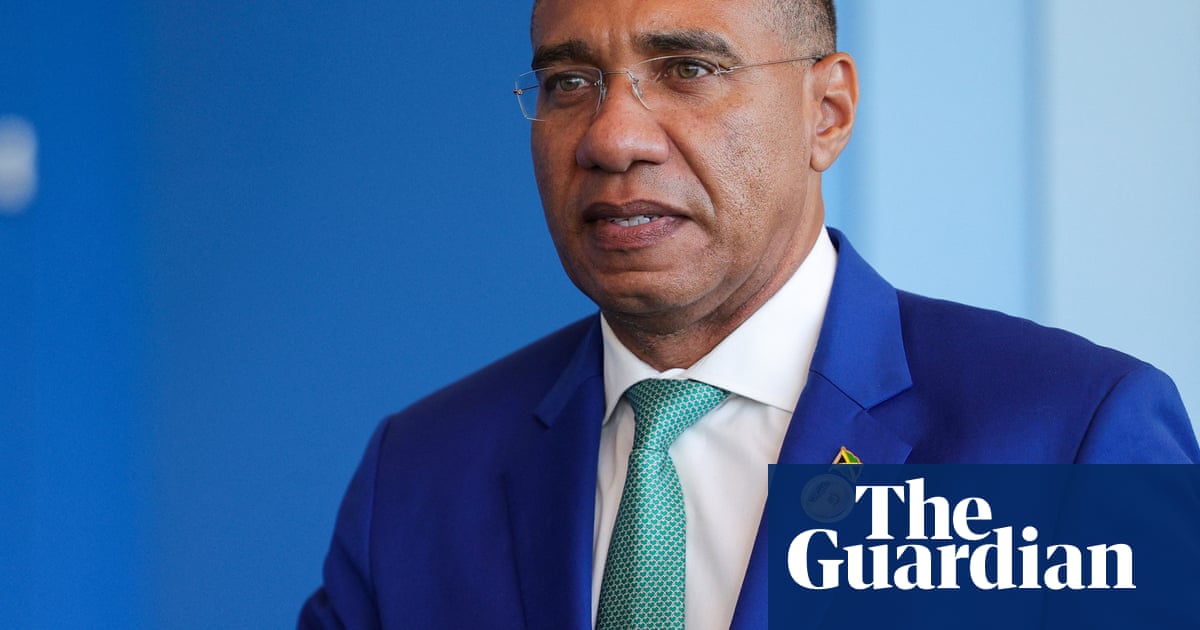Jamaicans are seeking answers after officials revealed a massive illegal firearms seizure described by experts as the largest in the country’s history, with enough guns and ammunition to “arm a small army”.
More than a week after the police and customs said they had intercepted 233 illegal rifles and handguns and more than 40,000 rounds of ammunition, the government has remained tight-lipped about the details of the find, arguing that revealing more information would hamper a sensitive cross-border investigation into their origin and the identity of those involved.
According to unconfirmed local reports, the guns and ammunition were discovered inside an industrial-sized water heater at a warehouse in the country’s capital, Kingston.
Announcing the seizure in a hastily organised press conference, the deputy prime minister and minister of security, Horace Chang, told journalists that the operation was “reported a bit early”. Chang refused to give details of the operation, telling reporters that “the more we talk about it, the less likely we are to find” those responsible, adding: “In fact, too much information [has] already gone out.”
Jason McKay, a criminologist, said that Jamaica – which is already battling highhomicide rateslinked togun trafficking from the US– should be treating the discovery of “enough guns to fight a government” as a crisis.
“You could literally arm a small army with that. At this point in time, our sovereignty is in question,” he said. “That much guns and ammunition falling into any environment could cause mayhem. If you were to drop that much guns and ammunition into London, you could change the culture of London crime. So it has to be looked at as a crisis.”
The government has hailed the gun find as a product of a $50bn (£37bn) investment in security and efforts to tackle organised crime.
Andrew Holness, Jamaica’s prime minister, told reporters it was the result of improvements in resources for the Jamaica Customs Agency, improved partnerships with international partners and “significant investment” in scanning technology.
Holness also avoided details, saying the weapons had been discovered with scanning technology and predicting that increased interdiction would reduce the supply of guns in Jamaica. “The investigations are ongoing, and I am certain that our security forces will track down, along with our international partners, those who were responsible for this,” he said.
Last year the New York attorney general,Letitia James, announced new measures and legislation to tackle gun trafficking from the US to the Caribbean. James quoted Jamaican government estimates that at least 200 guns are trafficked into the country from the US every month, and said that the weapons are fuelling violent crime and enabling networks that traffic drugs to the US.
The Jamaican government also pointed to a historic 43% drop in murders since last year. “That means we have a reduction of … [about] 210 murders compared to the period last year, that is, January to May. This is the lowest rate of homicide in the island since 1991,” Chang told reporters.
Kamina Johnson Smith, the foreign minister, said the strong crime reduction trend has resulted in the US upgrading Jamaica’s travel advisory fromlevel three, which urges travellers to “reconsider your travel to the destination due to serious risks to safety and security”. Jamaica’s advisory, she said, is now at level two – the same as “much larger and more developed countries” such as Spain and the UK.
“This improvement is a timely acknowledgment of Jamaica’s continued progress in enhancing public safety, as well as the travel experience for visitors,” she added.
However, while McKay has lauded the “amazing” reduction in crime, he has called for “extreme measures” to deal with the rising number of guns being trafficked. He said: “Of course, the police are doing their best to recover them, but if they’re going to come in at this rate, then it’s not going to be quantifiable. You have to do something drastic at this point.”
The criminologist said that capital punishment should be considered. “Jail time isn’t enough for somebody who’s importing 220 guns. It’s more than them just endangering one person’s life or two [people’s lives]; they’re endangering the entire society’s life in Jamaica,” he said.
